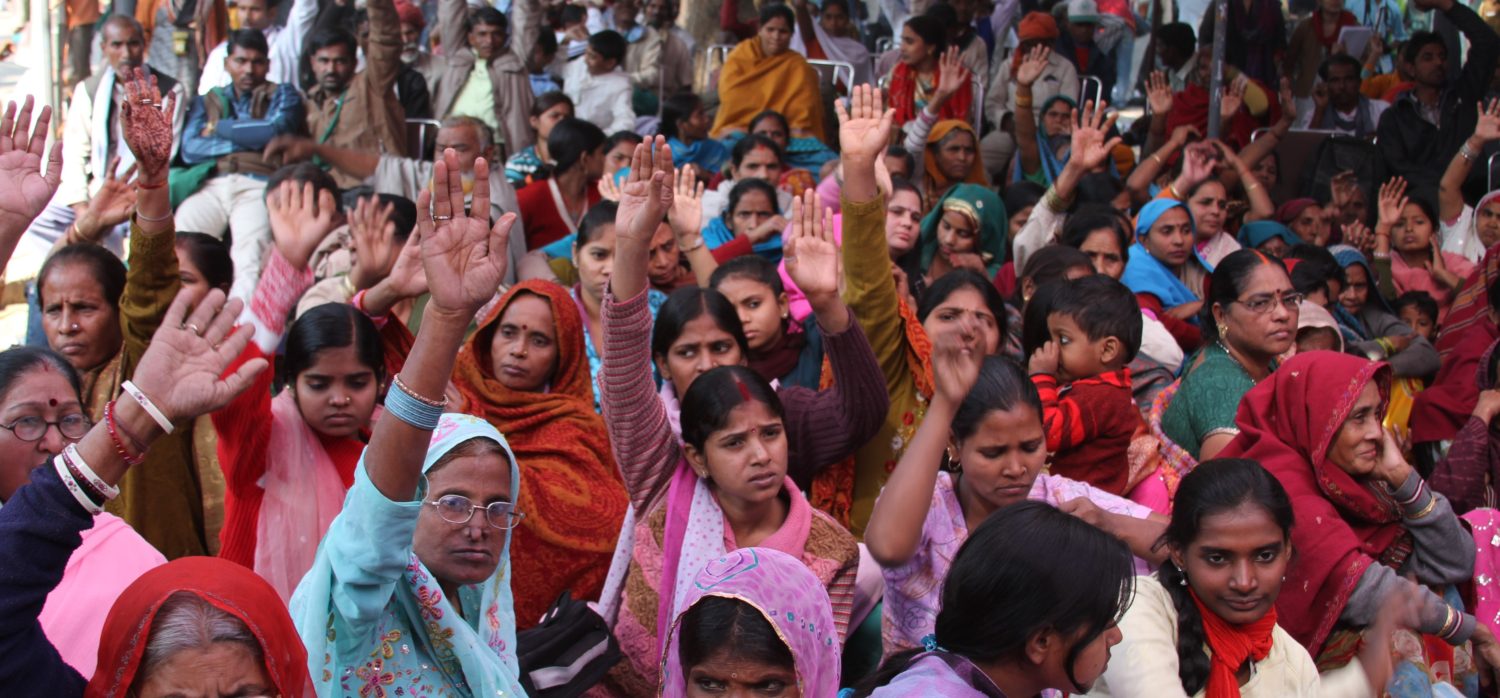One of the core initiatives of SNS has been to empower people to meaningfully engage with, and demand accountability from, their elected representatives using the RTI Act.
Report cards on the performance of elected representatives
Campaigns for proactive disclosure of information on the performance of elected representatives
Report cards on the performance of elected representatives
Using the RTI Act, information is accessed about the roles and performance of elected representatives – MLAs, MPs, and councilors. This information is widely shared through pamphlets, information camps and door to door campaigns. The sangathan develops Report Cards on the performance of elected representatives prior to elections and disseminates them in partnership with the media.
Objective information on the roles and performance of elected representatives is effectively used by people to ensure that their representatives address their development needs. For instance, in the water scarce Malviya Nagar constituency of Delhi, when residents of Begumpur slum filed RTI applications they obtained information that their MLA was spending around 70% of his MLA Local Area Development funds on constructing fountains in parks instead of spending funds to provide drinking water to the slums. Armed with information, women in large numbers got together and confronted the MLA, who then laid water pipes in the slums to ensure water supply to the residents.
Campaigns for proactive disclosure of information on the performance of elected representatives
Under Section 4 of the RTI Act the government is obligated to proactively provide information to citizens in easy to access ways and in the local language. Since 2008, SNS has been demanding that the government should proactively provide information on the performance of elected representatives to people under Section 4 of the RTI Act. In 2011, as a result of public hearings organised by SNS and petitions filed, the Central Information Commission (CIC) ordered the Delhi government to ensure that a board displaying details of all works sanctioned through the MLALAD scheme be installed in every constituency of Delhi and also be put up on government websites. The Commission also ordered the Municipal Corporation of Delhi (MCD) to proactively display information on utilization of Councillor discretionary funds on boards in each ward of Delhi and on the MCD website.
In 2013, the Delhi Legislative Assembly put in place a mechanism to provide live webcast of Assembly proceedings on its website. This was a result of an order passed by the Central Information Commission in August 2012 in response to complaints filed by SNS. The live webcast is available at http://webcast.nic.in/delhiassembly/
In 2016, on the basis of physical audits and verification of government websites, it was found that the government was not complying with the orders of the CIC. Under the Delhi M.L.A. Local Area Development Scheme (MLALADS), each of the 70 MLAs in Delhi is allocated Rs. 4 crore per year to carry out developmental works in his/her constituency. The annual expenditure on the scheme is Rs. 280 crores and over the 5 year term of MLAs, Rs. 1,400 crore of public money would be utilized for this scheme. Despite this, there is very little information amongst citizens about how these funds are utilized. The result is that often these funds are not used for the most important development needs of constituents. Corruption in the allocation of these funds is also an acknowledged fact and is amply borne out by government records Therefore, a complaint was filed to the CIC regarding the non-compliance with its orders by the Delhi government.
